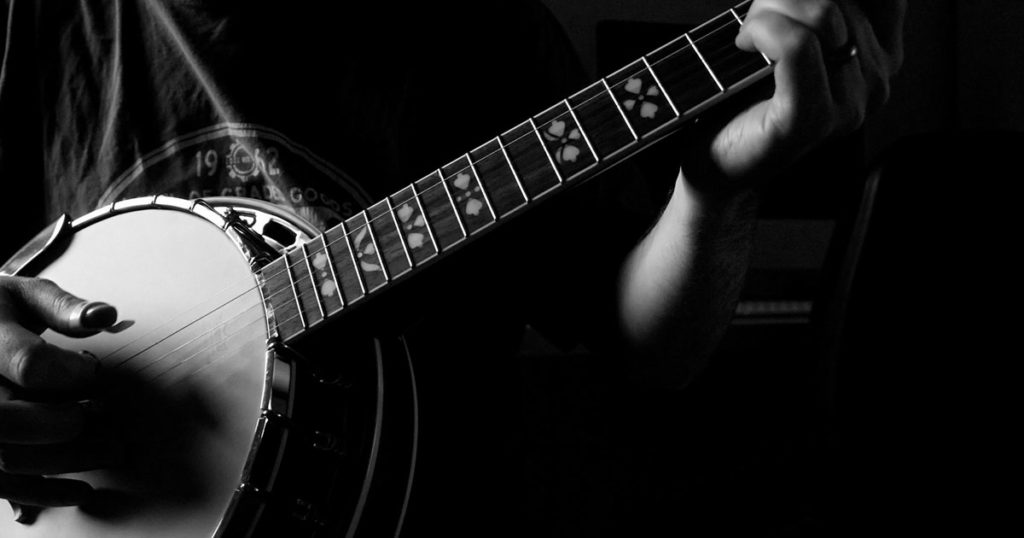
My favorite student wasn’t yet my favorite when she identified a song that I happened to mention in class. It was from decades earlier, but she recognized it as soon as I played the opening notes on my tablet. “Michael Martin Murphey!” she exclaimed, naming the singer, not the most familiar name in country music. That was more than I had known. I looked at her with new interest. We became friends just before the pandemic and lasted through Spain’s shutdown. When schools opened up again, she enrolled for another year of class, advancing slowly, before giving up on English. Or on me. “Life goes on,” as they say in the songs, and I haven’t seen my friend in months. With confinement over, mask wearing mostly behind us, and isolation no longer a policy of the Spanish healthcare system, more activities fill people’s days. More worries, too. We’re all busy. We all have looming responsibilities. Children grow up. Aging parents get older. We get older. Yes, life goes on.
But it also hovers, and circles. In a new class this fall, the discussion revolved around music, and when a student said he played the banjo, I asked if he liked country. He smiled apologetically and said not too much. Well, that’s not surprising—so many people don’t. But I can’t understand it. Doesn’t everyone like a story? My brother inherited all the musical ability in my family, as I like to say to deflect criticism for any deficiencies I show, but I recognize a good first line when I hear one. In a New Yorker article I was reading one dark and chilly early morning, Amanda Petrusich, writing about John Mellencamp and so-called heartland rock, says that the genre’s best songs start like short stories. As examples she gives Lucinda Williams’s “The Night’s Too Long,” which begins, “Sylvia was workin’ as a waitress in Beaumont / She said, ‘I’m movin’ away, I’m gonna get what I want.’” Then Mellencamp’s “Small Town,” with the opening line, “Well, I was born in a small town / And I live in a small town / Probably die in a small town.” I sat back, stroked the orange cat on my lap, and considered.
Are these good songs? I don’t know either song, but even if I did, I wouldn’t presume to answer. But do they unfold like short stories?
Well, there are stories and there are stories. I would say these two don’t start as fast or cut as deep as the best. For that, look at Dallas Frazier’s song “The Son of Hickory Holler’s Tramp,” which I know from Kenny Rogers’s rendition. It begins, and within seconds you know what troubles happened and to whom. “Corn was dry, the weeds were high when Daddy took to drinkin’ / Then him and Lucy Walker, they took up and run away.” The lost crop, despair, and the human response: drink and abandonment of the family. Not even two dozen words. It’s a miracle. Why am I doing anything other than trying to make miracles too? Why am I teaching English?
The cat did not have the answer, but stretched and resettled.
Why does the carpenter use the saw and chisel? Why does the smith use the anvil and the hammer? Because tools are necessary. English is a tool, like French or German. Or Spanish. My students know a language already. They have their tool. Why avail oneself of more than one set? Why study English in the seaside city of Gijón in the third decade of the third millennium? Not to write poetry. Not to understand it, either, though English song lyrics are as common on the airwaves as lyrics in Spanish. My adult students almost invariably say their motive is to get ahead: a better job, or just get a job at all. Sometimes the reason is to keep the job they have. Well, as Hickory Holler’s tramp knew, you have to make a living, you need to put food on the table. When the crop fails and the provider runs off, you shed a tear and then you do what you have to: you go on. Isn’t that so?
The cat purrs on my lap. How easy for him to be happy! Maybe I haven’t heard from my favorite student because she’s back to traveling, which was her reason for studying English. To facilitate arrangements wherever she goes and to communicate with the people she encounters. To read the signs and the people, one of the loftier reasons I’ve heard. Or, who knows, she might be busy writing poetry. She’s got the tools—we all do—and as a lover of country, she surely appreciates a good story when she hears one. It’s just a hop from there to making one. Right?
The cat sleeps on.


